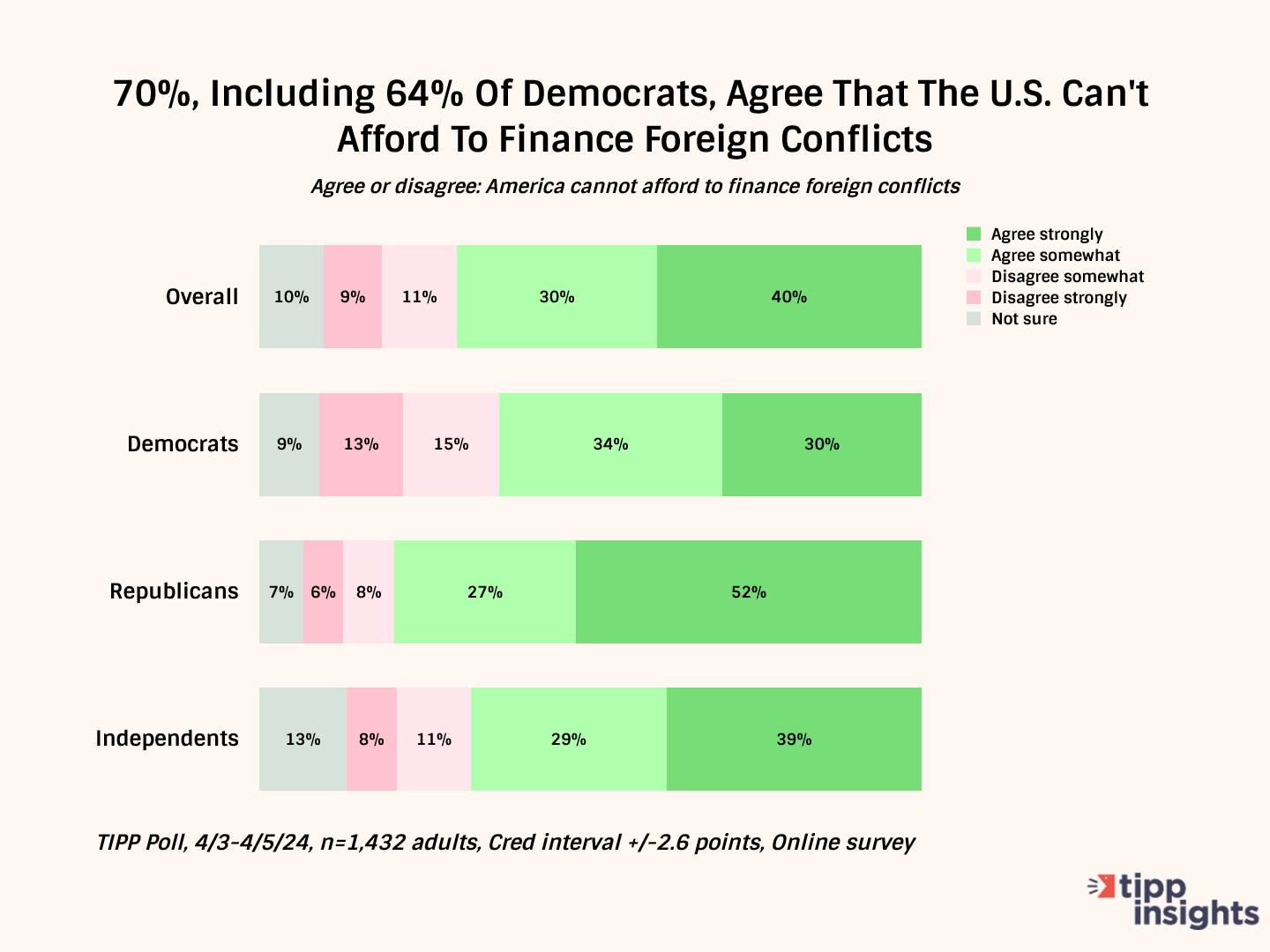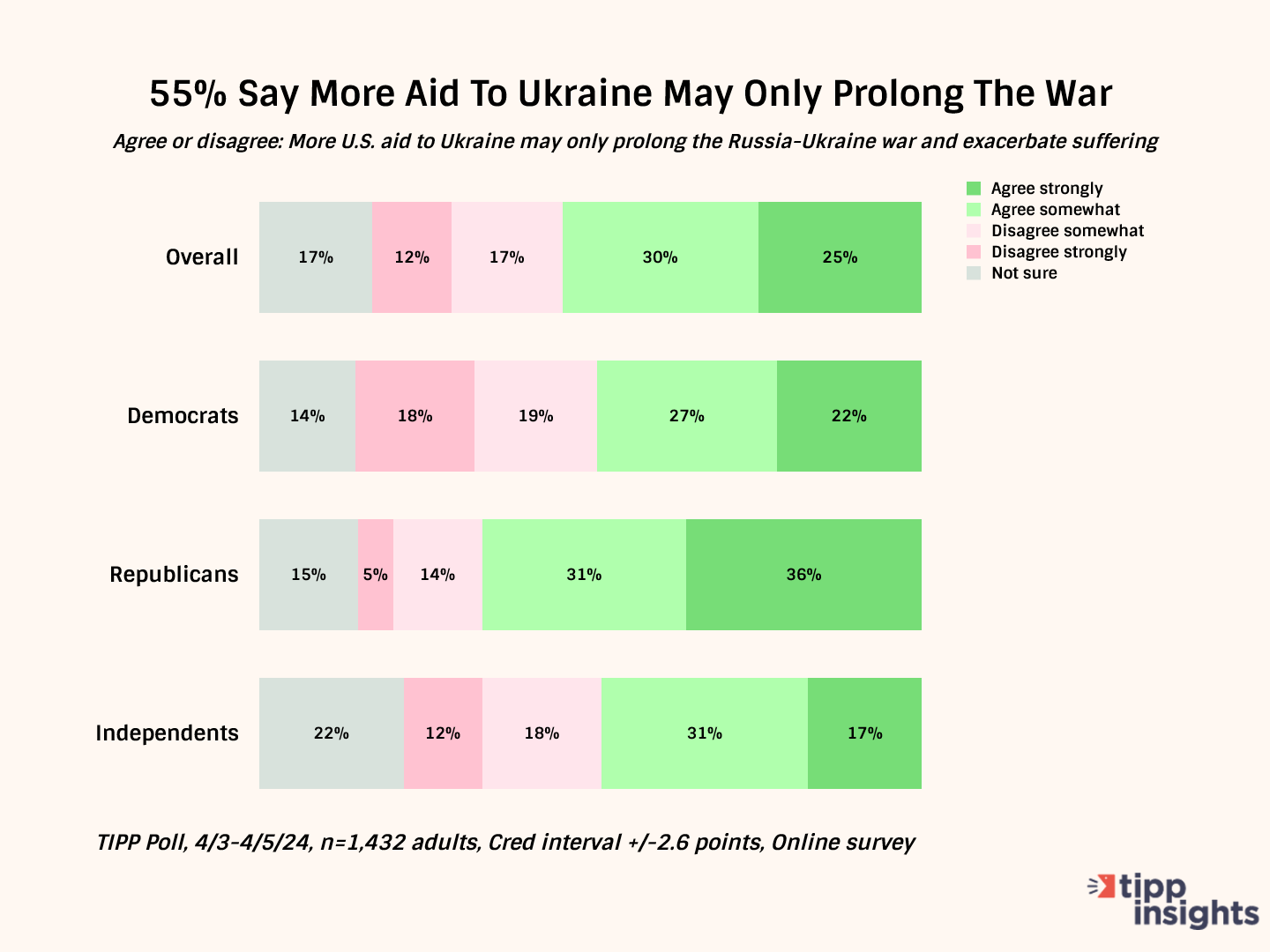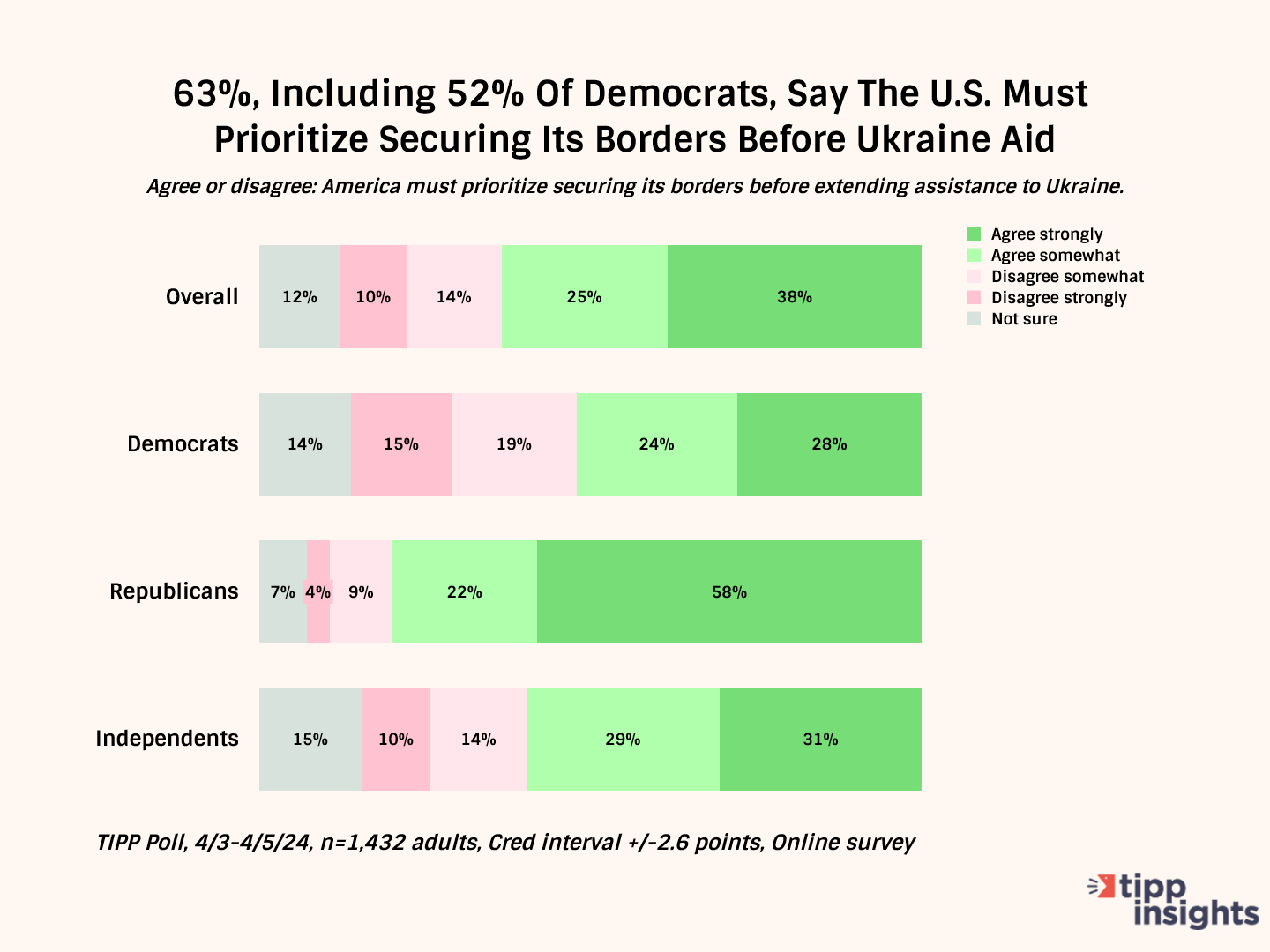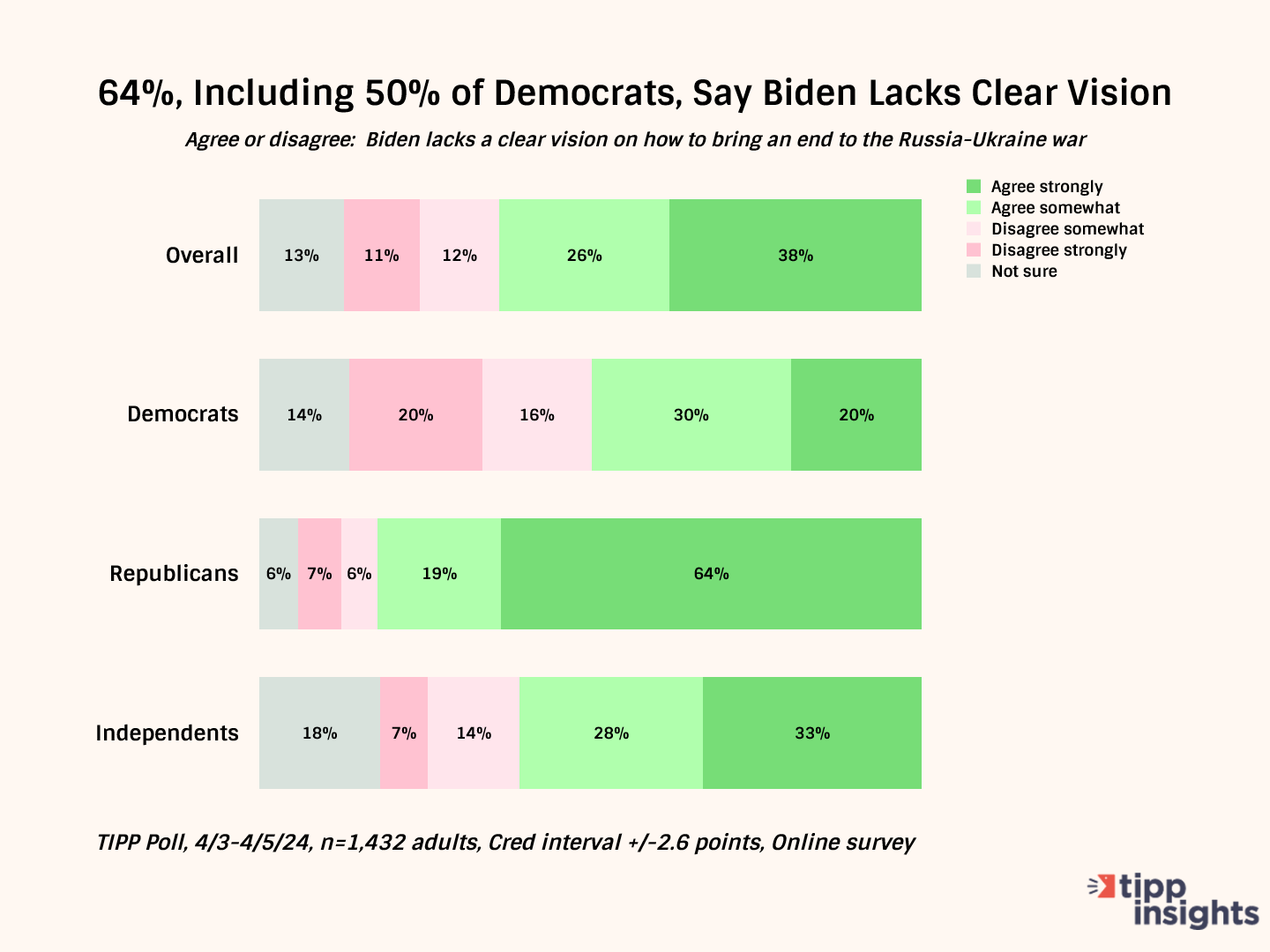America is now like a shopper who has walked into a crowded porcelain doll store. The shopper dislodges, by accident, one expensive doll on a rack for it to break. The store's policy, "You break it, you buy it," applies. The shopper forks out the cash but has nothing to show for it in return except broken porcelain pieces.
To be sure, America has been a strong supporter of Ukraine even before Russia fired its first shots in February 2022. Having sent over $115 billion in weapons, logistical training, and humanitarian aid, the United States has been the largest benefactor of Ukraine to date. Put differently, every American household has borrowed and contributed $900 to Ukraine, and with the additional $61 billion, the total amount per household reaches $1,400.
When Speaker Johnson took the gavel nearly six months ago, and after Ukraine's famed counter-offensive failed, America seemed to pause its support. The Beltway crowd - President Biden and his foreign policy team, Chuck Schumer, Mitch McConnell, and the Uniparty Neocons - were all for more aid for Ukraine. But Johnson refused to bring up the Senate bill for a vote, as was his prerogative as Speaker. The world waited, begged, persuaded, and cajoled Johnson - making trips to Washington to add pressure. A lack of American aid was coming in the way of Ukraine's victory, so the appeal went. Johnson did not budge.
As Ukraine began failing on the battlefield, most recently surrendering Avdiivka, an embattled city in eastern Donetsk, the Russian advantage in troop strength, weapons, defensive systems, and strategy became clear. But Zelenskyy, the Beltway crowd, and the West again pushed Johnson to no avail, rather than seek peace. Military types, including commanders, testified in Congress about the urgency of aid. Johnson remained unmoved.
The drumbeat then changed. If the $61 billion aid package did not pass, Ukraine would face defeat by December 2024. It was no longer that Putin would not stop at Ukraine. It was no longer that China would become emboldened to harass Taiwan. Ukraine would face defeat, and by extension, that would mean the West would be defeated, too.
The chief proponent of this view was respected CIA Director Bill Burns, who, having served as ambassador to Russia from 2005 to 2008, had cut a profile as an adult who understood both sides of the Ukraine-Russia situation rather than the military-industrial complex propagandists within the Beltway. Burns, who speaks fluent Russian, had warned then-Secretary of State Condoleezza Rice in 2008 about how Ukrainian entry into NATO would be a problem.
In more than two and a half years of conversations with key Russian players, from knuckle-draggers in the dark recesses of the Kremlin to Putin's sharpest liberal critics, I have yet to find anyone who views Ukraine in NATO as anything other than a direct challenge to Russian interests.
Whether Burns was the influence that helped change Johnson's mind, one will never know. Almost like turning on a light bulb, Johnson pulled a 180 and became an ardent supporter of Ukraine aid. We noted that the last holdout on Ukraine funding had caved. Johnson instantly declared himself a wartime speaker, although neither President Biden nor Congress had formally declared that America was at war. Johnson said that sending aid to Ukraine was "the right thing to do," even if it meant asking Democrats for help to push through a vote in the Rules Committee. The maneuver helped him remain Speaker, a position that he covets.
Partisan Ukraine watchers, such as Alexander Vindman, who was a crucial player when former President Trump was impeached regarding Ukraine and now runs a business to help weaponize Ukraine and, therefore, directly benefit from the aid package, used a different justification. Vindman said the assistance would give Ukraine a "big boost of morale."
Whatever the justification for the aid, America has gone so deep into the problem that, like our proverbial shopper in the doll store, it is forever intertwined with what will happen in Ukraine. If Ukraine wins or manages to avoid defeat by the end of the year, it would be because of America's aid and Speaker Johnson, who would then be a hero. If Ukraine loses, that would be because Johnson did not act for six months, and the aid came too late. Other structural problems that Ukraine has - such as an inability to draft sufficient numbers of soldiers and a lack of training to operate sophisticated weapons, such as the F-16 - would all pale in comparison. America dilly-dallied, and Ukraine lost, will be the narrative.
America finds itself in a terrible position in Ukraine and Israel. Both countries are critically dependent upon America's generosity, military support, and diplomatic influence. Still, neither is under any obligation to America to conduct their offensive or defensive operations per Washington’s wishes. It is a classic case of being responsible for an outcome but wielding no authority. America now owns the Ukraine problem, and it never had to. This one was utterly optional and a headache that could easily have been avoided.
Worse, it has become more obvious than ever before that America is driving a large-scale proxy war against Russia. It is unconscionable that our leaders have committed America so deeply to a conflict with a military superpower. Yet, not one leader has convinced Americans why the “as long as it takes” war 5,000 miles away between two countries is so crucial to America's national interest. It also confirms that we failed to learn our lesson after spending trillions of dollars in Iraq. Kudos to our leaders for adding an additional $500 of debt on behalf of each American household, bringing the total debt to $272,808 per household.
Our previous prediction that the war would last until January 2025 now appears more certain. This reinforces the need for a change in America’s leadership.
Related Public Opinion












